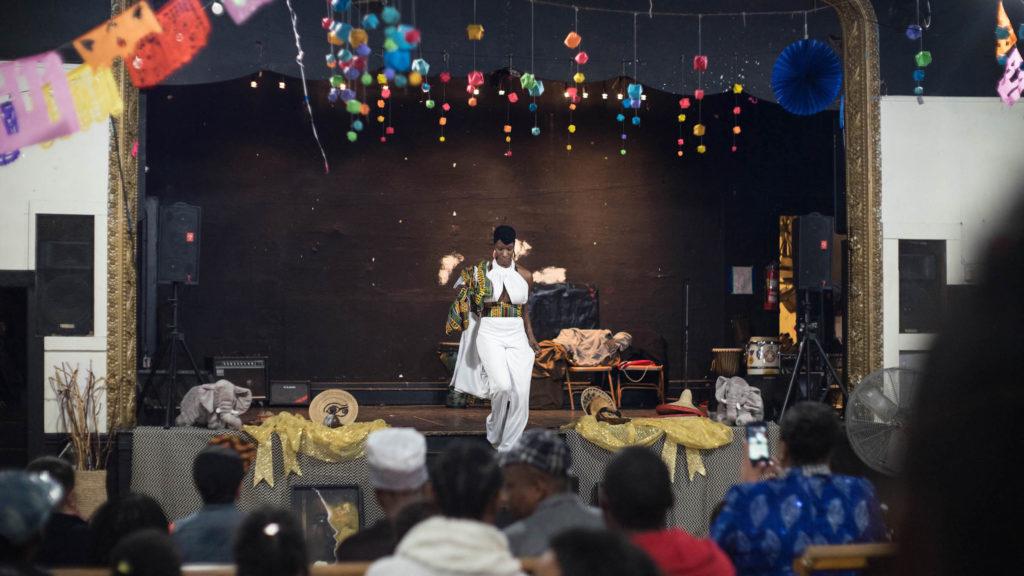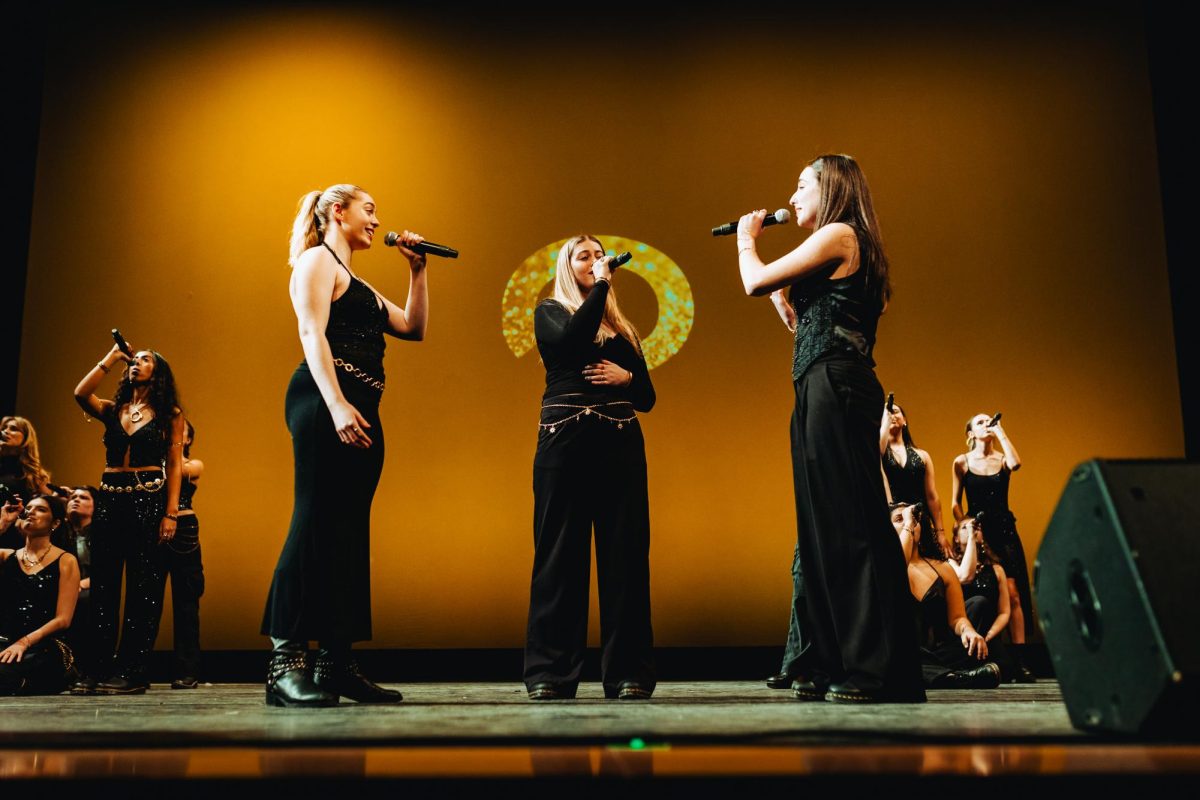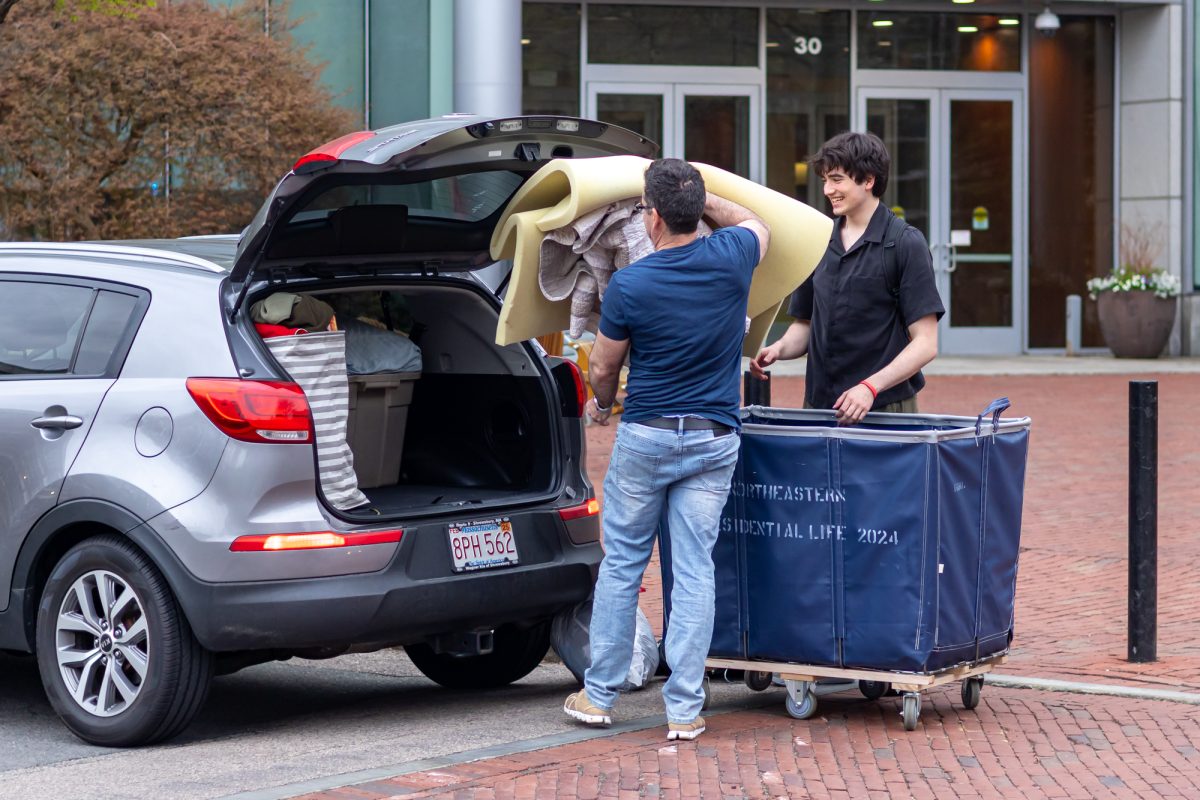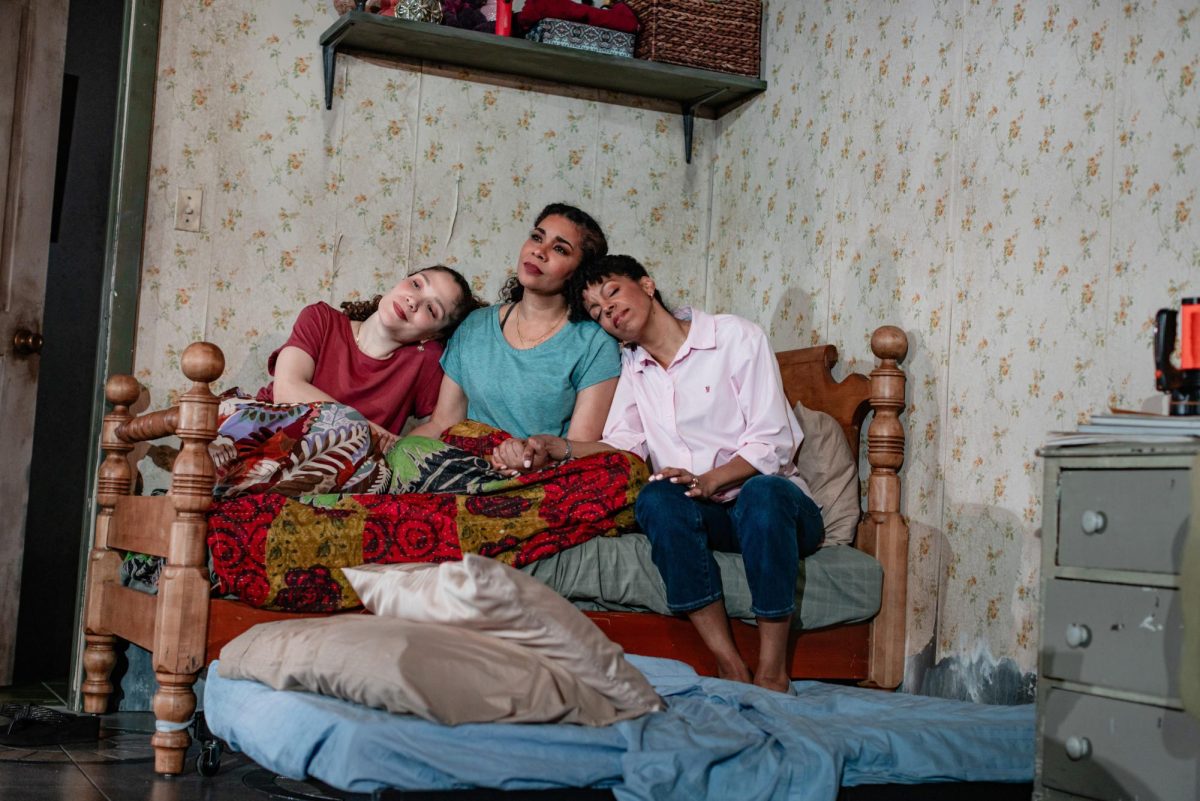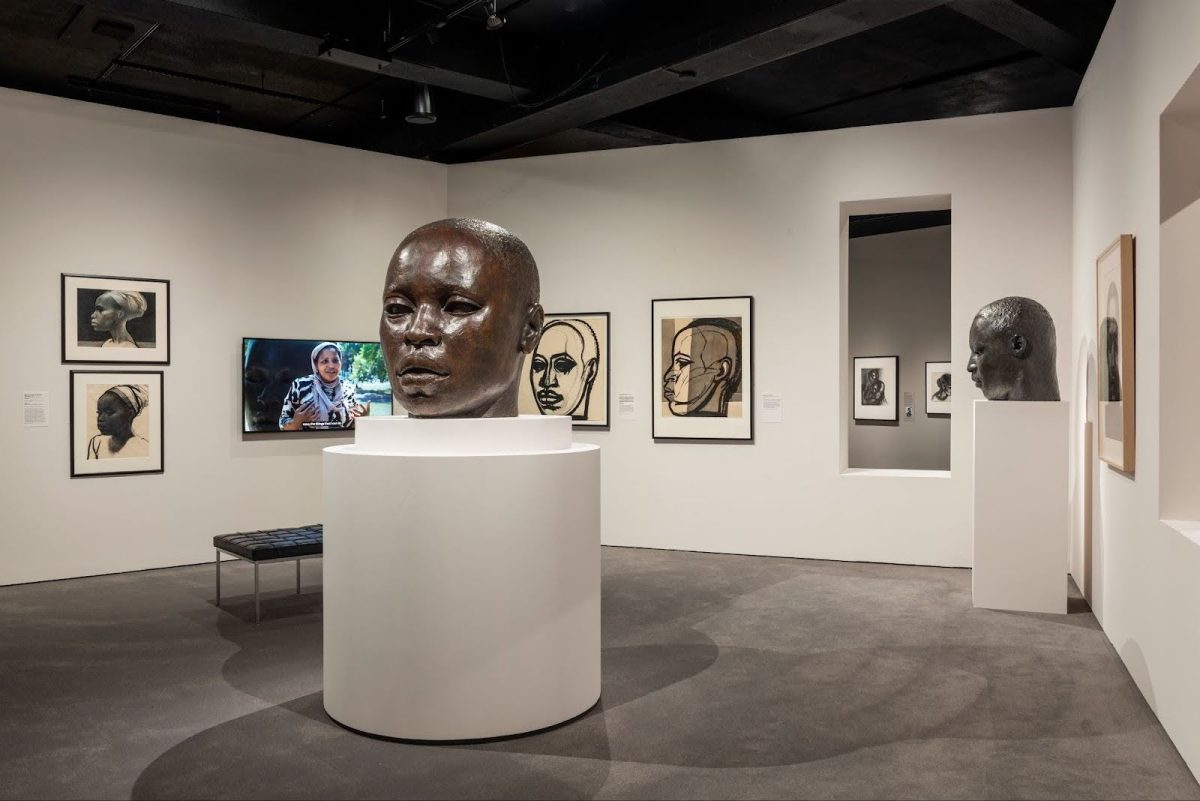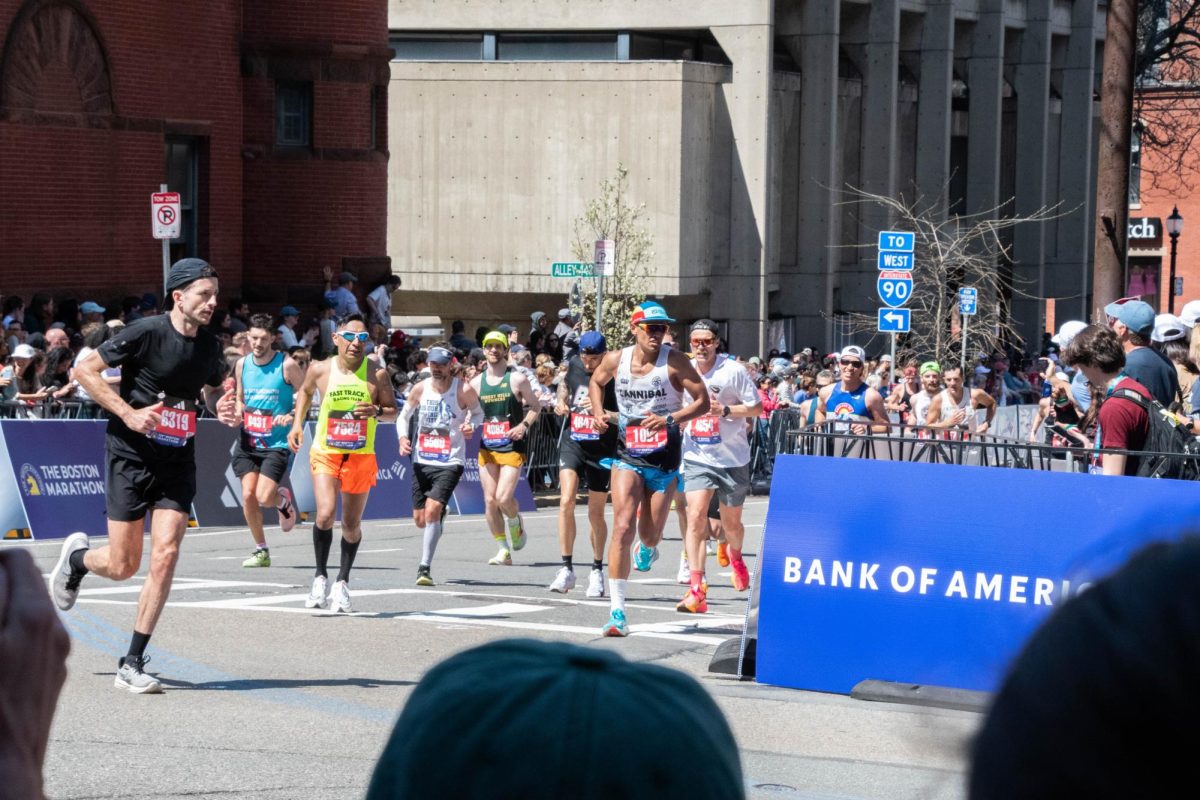While bold patterns and bright colors hit the runway, activists and musicians took the stage during the first African Fashion Week Boston Friday through Sunday. The three-day event brought together more than 30 creative groups and individuals from around the world to celebrate African heritage, cuisine, music, visual art and fashion.
Designer Nahdra Ra Kiros founded African Fashion Week Boston (AFWB) with the intention of highlighting Boston’s African community.
“I’m Ethiopian, and I’ve been designing clothes for a while in Boston,” Kiros said. “I usually participate in Boston Fashion Week, and that was great, but I thought it was time to really bridge the design world and African community together. With Boston being so diverse, as well as a bunch of creative souls [living] in Boston, I felt like it was time to put it all together. There’s room for everybody, so let’s put it all together, let’s share and celebrate together our beautiful culture.”
Saturday night mainly featured runway shows, while spoken word poets, musicians and dancers performed for most of Sunday evening. “When Elephants Fight,” a documentary about violence created by the extortion of natural minerals in the Democratic Republic of Congo, was screened Friday night.
“AFWB has been built on love. Of my love for my culture, but more than that, my love for the planet and the idea of, ‘Hey, let’s celebrate together,’” Kiros said. “Sometimes we have so many reasons to be down, but you know, that’s life. It’s not always easy. So I like to float on high vibrations and loving energy, and that’s one of the things I strive to share in my collections when I do my fashion shows.”
To spread her message of love, a portion of the profits from ticket sales will be donated to buy supplies for a school in Ethiopia.
“We have so much here, and we have enough to share, so for me it’s important to make sure if we’re giving back,” Kiros said. “I’m a mother of three, and I homeschool my children, so as a mother, as a teacher and, really, as someone who cares about our community, it’s important we use our resources to help everyone grow.”
Kiros’ own fashion brand, The House of Nahdra, was one of six collections featured on the runway. Other designers included Asya Idarous Khamsin, a Tanzanian designer, humanitarian and the 2015 Swahili Fashion Week Lifetime Achievement Award winner, and 10-year-old Shaumba Dibinga.
Dominique Dixon’s jewelry company, Mahogani, was one of eight vendors participating. Her work features leather, metal and earthy tones. Dixon sees the fashion event as an opportunity for people to explore other cultures.
“I think a lot of people have misconceptions on black culture just because of the social scene and things that are happening in our world,” Dixon said. “I would just really like everyone to kind of have a positive outlook on black culture as a whole. And that to me is really what my line represents: The positive, confident black woman.”
Amber Williams, who performs under the stage name SublimeLuv, recited four spoken word poems the final night. “Ancient,” “Roots,” “Letters to the Black Rose” and “Resurrection” all focus on self pride as well as black and queer womanism.
“I feel like everyone looks at Africa like some third-world continent, when in reality, it’s so rich in natural resource, fashion, I mean, civilization,” Williams said. “It’s where everything began, so I think it’s beautiful we’re honoring that and taking pride in it today.”
University of Massachusetts Amherst junior Fatima Shields sold waist beads Saturday and Sunday night. AFWB was her first event and she was excited to use the opportunity to provide people with a fuller view of African culture than what the media presents.
“I believe that there’s a lot of interest to be exposed to more cultures and to get to know people and what they represent, where they come from,” Shields said. “Some of my friends don’t even know where Ethiopia is. People will know, because of the media, of certain countries. People will know of Sierra Leone through blood diamond, or of South Africa because of apartheid. It’s up to us to pick what image and how we represent our country and where we come from.”
Local artist, songwriter and producer Quandel Johnson attended the festival Sunday night to support The House of Nahdra and his brother, Jahriffe B. Mackenzie of the roots reggae band JAH-N-I Roots Movement. Mackenzie was honored by Boston Mayor Martin J. Walsh at the event.
Johnson hopes AFWB continues to create a sense of the community in the future.
“I think it’s important for us to have these events to help people in the diaspora regain a sense of identity, because over the years a lot of our people have lost sense of where they come from,” Johnson said. “We’re able to come from all different angles, people are coming from all over the place to come to these events. So it’s a market that’s meant for unity.”
Kiros also hopes to make AFWB an annual occurrence; the second night sold out, and she had to turn people away. She aims to rent out a bigger space and showcase a wider variety of designers next year.
“The beauty of African Fashion Week Boston is it really is a platform for gathering our community,” Kiros said. “Our community in Boston, our community of African descent — sooner and later — and of creative beings. And even more than that, everyone in between. No matter what your job, no matter what your race, no matter what any of those titles mean, coming together on love and to celebrate beautiful culture. That is the essence we built it on, and the idea is to let it grow, let it expand.”
Photo by Alex Melagrano


